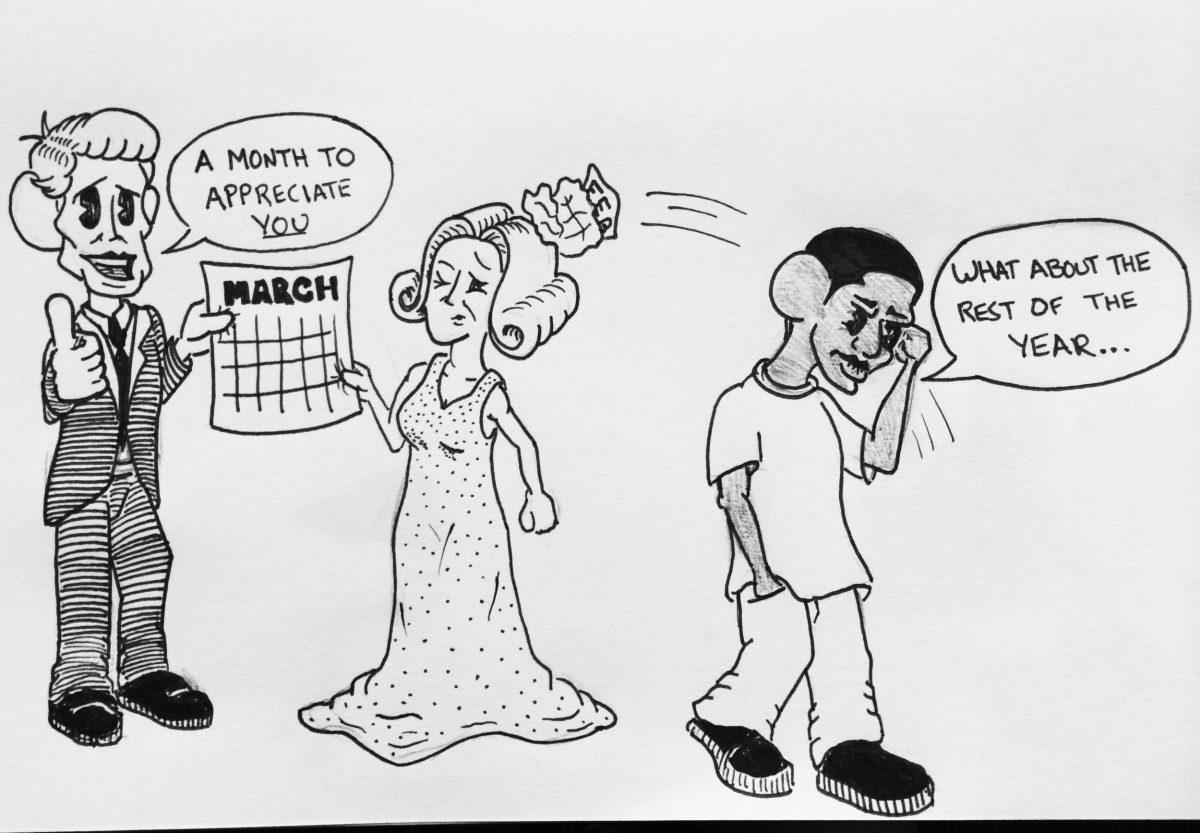In 350 B.C., Aristotle wrote, “[Woman is] more prone to despondency and less hopeful than man, more void of shame and self-respect, more false of speech, more deceptive . . . more difficult to rouse to action, and requires a smaller quantity of nutriment.”
With published, “credible” voices preaching these ideas, no wonder women were thought of as vastly inferior to men for the next 2,328 years.
The first-ever “Women’s History Week” celebration occurred in our very own Sonoma County the week of March 8, 1978, centralizing around International Women’s Day. The week was crucial inspiration for the women of Sarah Lawrence College’s efforts to establish “National Women’s History Week” in 1981, which eventually expanded in 1987 to what we know today as “Women’s History Month.”
The number of women that have impacted U.S. history continues to grow. From the Seneca Falls Convention in 1848, to Title VII’s banning of employment discrimination in 1964, to Condoleezza Rice’s appointment as the first African-American woman Secretary of State in 2005, to Hillary Clinton’s expected presidential candidacy in 2016, women are making notable strides against the prejudiced, pre-existing notions of their inferiority to men (Also: just last week was 100-year anniversary of women’s suffrage).
But like almost all other types of discrimination, stereotypes and biases about women are far from extinct. In 2012, the U.S. Census Bureau reported that women who worked full time, year-round earned 77 cents for every dollar that men working full time, year-round made. This is ironically juxtaposed with the National Center for Education Statistics’ report of the same year that, consistent with trends of years past, stated more women than men apply, enroll and graduate from college.
Women all over the world face constant intellectual, emotional, sexual and physical bias and abuse both in and out of the workplace. This isn’t a secret, or at least it shouldn’t be for anyone who claims to be educated. But what’s sad is that this fact is constantly made known to the world – through both mass media and personal stories – yet it all continues to happen on a daily basis. Yes, women have come a long way from Aristotle’s absurd generalization, but the progress is nowhere close to where it needs to be.
How is it that more than half of the world’s population – and the source of life for every human on the planet – continues to be disrespected, degraded and, in many cases, dehumanized? Is one single month out of our entire year really enough to counteract such senseless discrimination?
Women’s History Month is a reminder of how far women have come in society, showcasing and forever embedding these primary figures to inspire men and women alike to push the envelope.
Sonoma State women should be particularly proud this month. The annual Vagina Monologues was a great success this past weekend and opened the door for more conversations about feminism, renowned activist Dolores Huerta will be lecturing at our campus on March 27, and the university still has a ton of Women’s History events and movies lined up, including a series of lectures that focus particularly on women scientists.
But while Women’s History Month is an important time to celebrate women for everything they’ve done, people should be remembered for their accomplishments – not because their sex accomplished something.
Still, it’s an important time to educate both men and women on what it takes to overcome adversity, and how we can continue to reverse the stereotypes that have spearheaded that adversity for centuries.



































